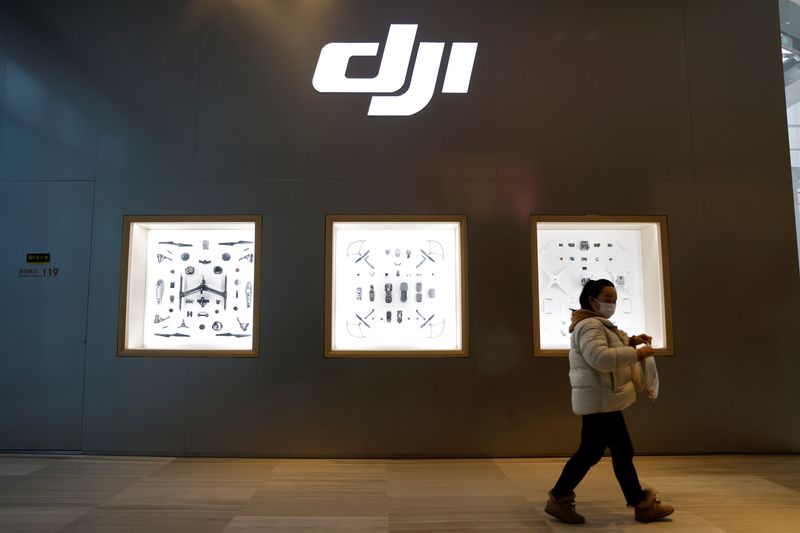By David Shepardson
WASHINGTON (Reuters) – China-based DJI sued the U.S. Defense Department on Friday for adding the drone maker to a list of companies allegedly working with Beijing’s military. He said the designation is wrong and has caused significant financial damage to the company.
DJI, the world’s largest drone manufacturer that sells more than half of all U.S. commercial drones, has asked a U.S. district judge in Washington to order its removal from the Pentagon’s list, designating it as a “Chinese military company.” . controlled by the Chinese military.”
Listing serves as a warning to U.S. entities and companies about the national security risks of doing business with them.
DJI’s lawsuit says that because of the Defense Department’s “unlawful and misguided decision,” the department has “lost business deals, been stigmatized as a threat to national security, and has been prohibited from contracting with multiple federal government agencies.”
The company added: “US and international customers have canceled existing contracts with DJI and are refusing to enter into new contracts.”
The Defense Department did not immediately respond to a request for comment.
DJI said Friday it filed the lawsuit after the Defense Department failed to engage with the company about the designation for more than 16 months, saying it had “no alternative but to seek relief in federal court.”
Amid strained ties between the world’s two largest economies, the updated list is one of several actions Washington has taken in recent years to spotlight and clamp down on Chinese companies that they say are helping China’s military could strengthen Beijing.
Many major Chinese companies are on the list, including aerospace company AVIC, memory chip maker YMTC, China Mobile (NYSE:) and energy company CNOOC (NYSE:).
In May, lidar manufacturer Hesai Group filed a lawsuit against the Pentagon’s Chinese military designation of the company. On Wednesday, the Pentagon removed Hesai from the list but said it will immediately relist the China-based company for national security reasons.
DJI is facing increasing pressure in the United States.
Earlier this week, DJI told Reuters that Customs and Border Protection is blocking the import of some DJI drones from entering the United States, citing the Uyghur Forced Labor Prevention Act.
DJI said there is no forced labor at any stage of production.

US lawmakers have repeatedly raised concerns that DJI drones pose data transmission, surveillance and national security risks, something the company rejects.
Last month, the US House of Representatives voted to ban new DJI drones from operating in the US. The bill awaits action from the U.S. Senate. The Commerce Department said last month it is seeking comment on whether to impose restrictions on Chinese drones that would effectively ban them in the US – similar to the proposed Chinese vehicle restrictions.


